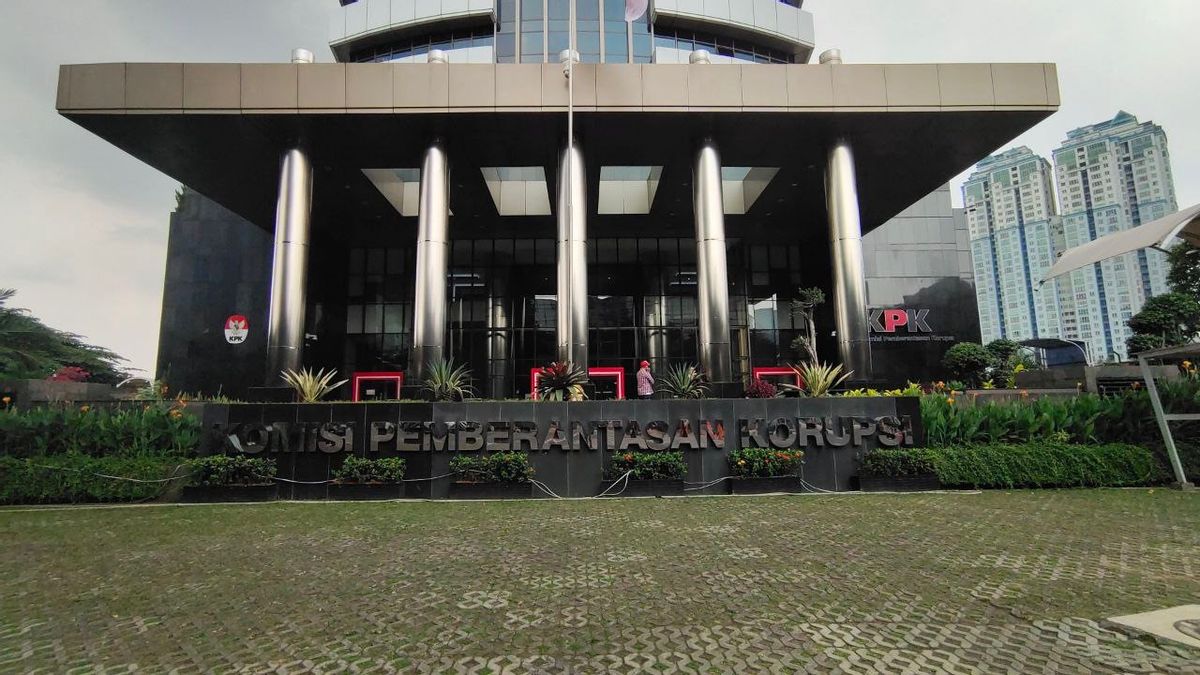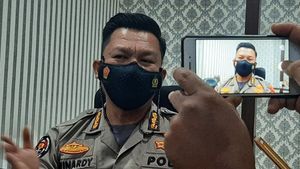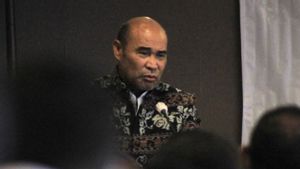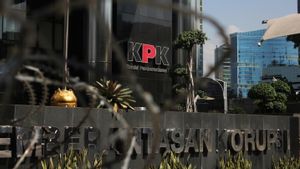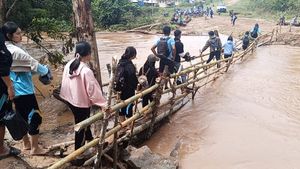JAKARTA - Deputy Chairman of the Corruption Eradication Commission (KPK) Alexander Marwata admits he is concerned about the practice of utilizing natural resources but does not want to pay taxes. According to him, this kind of method makes the rights of the people around the mining site lost and they live in difficult conditions.
This was conveyed in the Coordination Meeting (Rakor) of the Nickel Mining Industry Governance Review Collaboration which was attended by relevant stakeholders in Ternate, North Maluku, Tuesday, November 9.
"We hope that natural resources will prosper, but in many cases, the people living around exploration mines always live in poverty," Alexander said in a written statement quoted on Wednesday, November 10.
For this reason, the KPK then focused on the natural resources sector which was considered to have a very large potential for deviation. In addition, said Alexander, the weak point in the context of saving natural resources in various sectors is related to law enforcement ranging from taxation, customs, and regional retribution.
"This is a fact. We understand everything. The KPK is actually here to strengthen all of its main functions, as long as the presence of the KPK can make those who frequently intervene can feel daunted," he said.
SEE ALSO:
Furthermore, Alexander invited all parties present to work together to think about saving natural resources. He asked all parties to provide information on acts of corruption because the KPK could not be present at any time in the field to monitor directly in the field.
As for unpaid taxes, Alexander said that thousands of Mining Business Permits (IUPs) had been pushed by the KPK to be revoked for violating the provisions. "We encourage this concern so that we can find a joint solution," he said.
On that occasion, Alexander also explained various problems in nickel management. The first problem is the inconsistent policy of increasing the added value of nickel, thus providing incentives for illegal exports.
Second, the absence of key performance indicators in the construction of smelters results in a weak assessment and evaluation monitoring system. The third problem is the weakness of the verification system for the transportation and sale of nickel commodities because the Business Entity's Work Plan and Budget (RKAB) does not include coordinates and sales handover points.
"Fourth, it has not been integrated in real-time with the internal system of the Directorate General of Mineral and Coal, nor with the external system of DJBC, the Directorate General of Budget, the Directorate General of Hubla, and the Directorate General of Daglu," explained Alexander.
In addition, nickel mining activities have not heeded the principles of good mining practices. Thus, the facts of environmental damage around the mining area are still found.
"Therefore, I hope today's coordination meeting can be a way to improve governance and the effectiveness of law enforcement in Indonesia's nickel commodity. Thus, the constitutional mandate to carry out management that leads to the greatest prosperity of the people can be realized," he concluded.
The English, Chinese, Japanese, Arabic, and French versions are automatically generated by the AI. So there may still be inaccuracies in translating, please always see Indonesian as our main language. (system supported by DigitalSiber.id)
